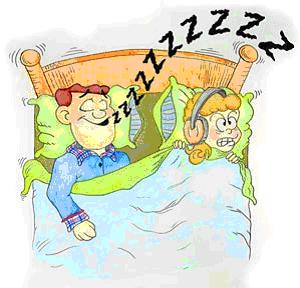I've been thoroughly enjoying my second day of completely geeking out at The Endocrine Society meeting in San Francisco! I've been attending session after session until it feels like my head is going to explode (and loving every minute!). As always at this conference, my head is swimming with new ideas, new research findings, and as...

I've been thoroughly enjoying my second day of completely geeking out at The Endocrine Society meeting in San Francisco! I've been attending session after session until it feels like my head is going to explode (and loving every minute!). As always at this conference, my head is swimming with new ideas, new research findings, and as always, important clinical pearls.
One of the most interesting talks I went to today was about the link between obstructive sleep apnea (OSA) and low testosterone levels in men, given by Dr Gary Wittert from Australia. We know that men with OSA are at risk of having low testosterone, and Dr Wittert helped to clarify this relationship for us.
The summary of Dr Wittert's presentation is that the common link here seems to boil down to obesity. We know that both sleep apnea and obesity are associated with low testosterone levels, and when you pick apart the data, obesity appears to stand alone as a risk factor for low testosterone. In other words, sleep apnea itself is not a risk for low testosterone levels - the risk is mediated by obesity. We often see low testosterone levels in men with obesity - while there are many possible causes that need to be checked for, we often end up with the finding that the pituitary's control of testosterone seems to be relatively suppressed in obesity, for reasons that remain somewhat unclear.
Dr Wittert described that when you treat a patient who has sleep apnea with a CPAP machine, use of the CPAP in and of itself does not result in improved testosterone levels. However, weight loss in the patient with obesity and low testosterone does clearly improve testosterone levels (and improves sleep apnea as well). By the way, untreated sleep apnea can be a barrier to effective weight loss, so CPAP may well be needed to start the cycle of weight loss, thereby improving the sleep apnea and, by virtue of the weight loss, helping to normalize the testosterone levels.
So, the bottom line here is that weight loss is the important key to treatment in the man who has sleep apnea and low testosterone levels, as that weight loss can improve both conditions.
You can read about whether you are at risk of obstructive sleep apnea here.
Dr Sue Pedersen www.drsue.ca © 2013
Follow me on Twitter for daily tips! @drsuepedersen













































